The Church The Westminster Confession of Faith
The Church The Westminster Confession of Faith
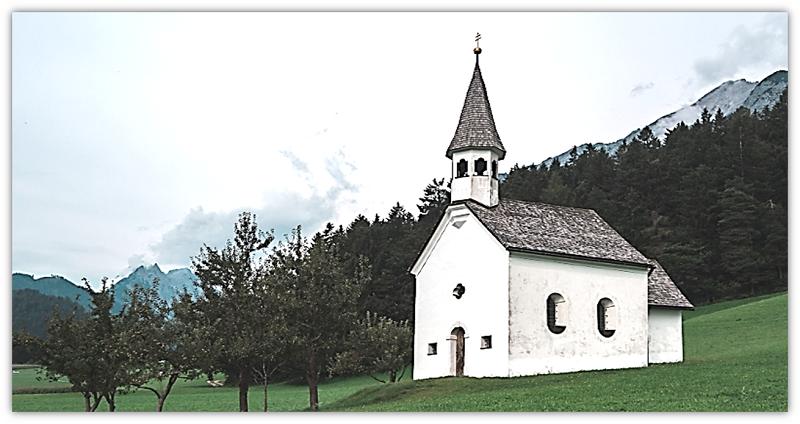
The Westminster Confession of Faith (25.1)⤒🔗
The catholic or universal Church which is invisible, consists of the whole number of the elect, that have been, are, or shall be gathered into one, under Christ the Head thereof; and is the spouse, the body, the fulness of Him that fills all in all.
After Peter confesses that Jesus is the Christ, the Lord makes this remarkable pronouncement: “I will build my church; and the gates of hell shall not prevail against it” (Matt. 16:18). The Greek word translated “church” means a number of persons called together in a public assembly (Acts 19:32, 39, 41). When the Jews translated the Hebrew Old Testament into Greek, this word was used for the congregation of Israel at Mt. Sinai (Deut. 4:10; 9:10), and later assemblies, especially for worship (2 Chron. 6:3, 12, 13; Ps. 22:22, 25; Joel 2:16).
Christ seized this word with a rich history in Israel and claimed it as His own: My church. He is the Lord of the congregation of God’s worshipers, the King of the true Israel (Phil. 3:3). Christ builds the church by His power, and He promises that Satan will never overthrow it.
This church transcends each local congregation of worshipers. A local church can die spiritually (Rev. 3:1), and Christ Himself may remove its light (Rev. 2:5). There are many sad sights of empty buildings where a church once met or where formerly faithful churches have fallen into heresy. But Christ said that His church cannot fail.
Therefore Christ spoke of what the Westminster Confession calls “the catholic or universal church,” both the church worldwide and the church in heaven and on earth. (The word catholic comes from a Greek word meaning universal or international, and does not necessarily or exclusively refer to Roman Catholicism.) Some of the church’s members are already in glory (the church triumphant). Some still fight the good fight of the faith on earth (the church militant). But all are one people called out of the world into holy union with Christ (1 Cor. 1:2). When we meet in local congregations, we join with saints in heaven and throughout the earth to worship God through Christ as one great assembly (Heb. 12:22-24).
The Confession has a number of things to say about the universal church.
First, this church is invisible. That does not mean its members are ghosts that meet in phantom buildings; it means that the universal church is defined in ways that are spiritually discerned and not physically seen. The church is not a building but a people who worship in spirit and truth, a temple built with living, personal stones (John 4:20-24; 1 Peter 2:5). It is not a particular denomination and cannot be defined by allegiance to any mere man such as the pope of Rome (1 Cor. 1:12-13). At certain times and places, the true church may exist as hidden gatherings of believers fiercely persecuted by leaders of the visible church (Rev. 13:11-15).
We cannot produce a complete list of the church’s members, for some whom we thought to be saved fall away and show that they never really belonged (1 John 2:19). Not everyone who confesses Jesus as Lord is known to Him or saved by Him (Matt. 7:21-23). The church’s membership is not defined by participation in baptism and the Lord’s Supper, for some who receive the sacraments are not in Christ (Acts 8:13, 18-24; 1 Cor. 10:1-8), and some true believers do not have the opportunity to receive them (Luke 23:39-43).
The true church is defined by invisible factors. The qualifications for membership are the secret election of God and the internal work of the Holy Spirit to produce faith. We can see evidence of these divine operations in the fruit of the Spirit, but the true identity of the church is invisible. Yet it is visible or known to God: “The Lord knoweth them that are his” (2 Tim. 2:19).

Second, the church consists of the elect. God elected or chose individuals in order to save them from their sins, adopt them as His children and heirs, and make them holy by union with Christ (Eph. 1:4). The church is “a chosen generation,” joined to Christ who is Himself “chosen of God, and precious” (1 Peter 2:4, 9). The Bible says, “Christ died for the church” (Eph. 5:25), that is, He decreed to redeem the elect long before any of them were born (Eph. 4:5). Their names were “written in the book of life from the foundation of the world,” and when they believe in the Lamb, they overcome the world because they are “called, and chosen, and faithful” (Rev. 17:8, 14).
Third, the church is in union with Christ as the bride or spouse of the Lord. The church was promised to Christ in God’s eternal counsels (2 Tim. 1:9) and is betrothed to Christ by the Spirit in effectual calling (1 Cor. 1:9; 6:17). As Christ’s spouse, the church is the object of Christ’s redeeming love and His nourishing and cherishing affection (Eph. 5:25, 28-29).
Fourth, the members of the church are joined to Christ in a living, organic, and personal union, knit to Him as closely as the members or parts of a man’s body (Eph. 5:30-31). Since Christ is the church’s head, He rules over it as Lord and the true members of the church submit to His Word as it washes them clean (Eph. 5:23, 24, 26).
This unspeakable privilege of union with Christ makes the church the recipient of the fullness of Christ’s graces, “his body, the fullness of him that filleth all in all” (Eph. 1:23). There is no station in life higher or more privileged than to be a member of the true church!
Westminster Confession of Faith (25.2)←⤒🔗
The visible Church, which is also catholic or universal under the gospel (not confined to one nation as before under the law), consists of all those throughout the world that profess the true religion; and of their children: and is the kingdom of the Lord Jesus Christ, the house and family of God, out of which there is no ordinary possibility of salvation.
In this section the Westminster Confession discusses the visible church. We make this distinction because the church is a people called together, but the call is twofold. There is an external call through the voice of the preacher (Matt. 22:9-10, 14), and an internal, effectual call through the powerful work of the Holy Spirit upon the soul (1 Cor. 1:23-24). We can see the people who have outwardly responded to the preacher’s call, but we cannot directly view the inward working of the Spirit.
Sometimes people find the distinction of visible/invisible confusing. Are we talking about two different churches? By no means! Perhaps an analogy would help. An old Dutch divine, Wilhelmus à Brakel, compared it to the soul and body of a man. We recognize that human beings have an invisible aspect and a visible aspect to their lives. The soul is hidden within the body, but we do not divide the soul and body of a living man. We do not expect people to walk around as souls without bodies. Nor do we say that a body without a soul is really a man – it’s just a corpse.
In the same way, we recognize that the church has an invisible aspect and a visible aspect. The invisible church is hidden within the visible, but we do not divide them into two churches. The claim to be part of the invisible church while having nothing to do with the visible church is as plausible as spirits walking around without bodies – and almost as frightening. On the other hand, a church without a vital union with Christ by the Holy Spirit is not a true church. It is an institutional corpse. In reality, the invisible church shows itself on earth in and through the visible church.
The Confession teaches us that the visible church is also universal, adding the explanatory note that it is not confined to one nation. From the days of Abraham, Isaac, and Jacob, God’s visible church consisted of Israel and those few foreigners such as Rahab and Ruth who were joined to Israel. The risen Christ commissioned His servants to make disciples of all nations (Matt. 28:19), and this they did by planting churches in many lands (Acts 14:23).
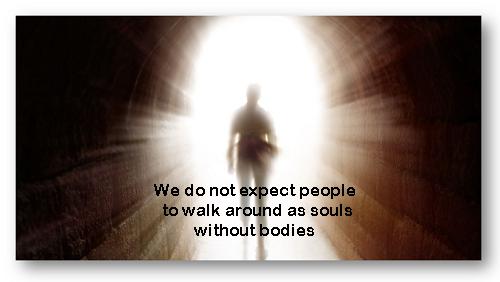
Historically, Reformed and Presbyterian Christians have taught that the universal church is visible not only in local churches but also in the order or structure that binds many congregations together into one, such as classes or presbyteries, and synods or general assemblies. This church polity is distinguished from Congregational (and Baptist) polity, in which the visible church has no higher authority than the elders who rule over local congregations, though congregations may consult together and cooperate in missions.
The visible church consists of all those throughout the world that profess the true religion. That is to say, membership of the visible church is defined by those persons who confess the faith, who publicly declare that they believe in Jesus Christ, and who obey the teachings of Christianity. The New Testament argues that personal trust in Christ will produce a public confession of Him before men (Rom. 10:9-10), and warns that those who refuse to confess Christ will not be owned by Him on Judgment Day (Matt. 10:32-33). A true profession of Christ as Lord also includes receiving the sacraments and walking in obedience to God’s laws (Matt. 28:19-20; Acts 2:38, 41; 1 Cor. 11:26). The visible church has a responsibility to exclude from its membership those who embrace serious error or sin and refuse to repent.
In addition to professing believers, the confession declares that the children of those that profess the true religion are also members of the visible church. Here the Confession stands on the pattern of the covenant that is universal in Scripture, whereby promises made to believers are extended to include their children (Gen. 17:7; Acts 2:39). Note that membership in the visible church is no guarantee of membership in the invisible church. Nonetheless, the practice of the visible church must conform to the promise, and so children of believers are to be baptized and received as members of the church.
Though it is true that some in the visible church are not saved, we should never fail to cherish the visible church. The Confession says that it is the kingdom of Christ and the house and family of God. The exiled Judean poet expressed it well:
“If I forget thee, O Jerusalem, let my right hand forget her cunning. If I do not remember thee, let my tongue cleave to the roof of my mouth; if I prefer not Jerusalem above my chief joy.” (Ps. 137:5, 6)
Westminster Confession of Faith (25.3)←⤒🔗
Unto this catholic visible Church Christ has given the ministry, oracles, and ordinances of God, for the gathering and perfecting of the saints, in this life, to the end of the world: and does, by His own presence and Spirit, according to His promise, make them effectual thereunto.
Some people think that true spirituality is so mystical that we really do not need the church with its creeds and confessions, and its forms of worship, so long as we follow what God says to our hearts. A personal relationship with the Lord surpasses everything else, even the plain teaching of the Bible. Other people put so much stock in the sacraments that they think receiving baptism, attending church, and taking the Lord’s Supper virtually guarantees their salvation unless they do something really bad. Reformed Christianity, in contrast to these extremes, does not separate the life of the visible church and the invisible work of the Spirit, but emphasizes both as crucial to knowing and pleasing God.
We treasure the church because Christ has given to the visible church the means by which He saves His people. First, Christ gives them the ministry, that is, men gifted and called as servants of the Word. Paul taught that the ascended Christ builds up His body by giving ministers of the Word to the church (Eph. 4:10-12). These men are not saviors but only servants of God and stewards of God’s truth (1 Cor. 4:1). Still, ministers who are faithful in their lives and teachings are instruments by which God saves the church from sin and brings it to glory (1 Tim. 4:16; 2 Tim. 2:10).
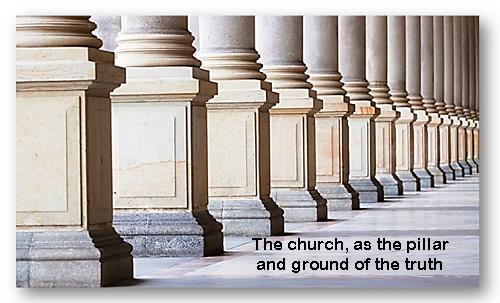
Second, Christ gives to the church the oracles of God (Rom. 3:1-2), the Holy Scriptures. We are grateful that in America we live in an age of unprecedented access to the Scriptures (just a click away on the internet). But the church, as “the pillar and ground of the truth” (2 Tim. 3:15), still plays a central role in preserving the Scriptures, guarding their faithful translation and interpretation, promoting education and literacy, reading them as part of public worship, and encouraging the private reading of the Bible in personal devotions and family worship.
Third, Christ gives the ordinances to the church. By “ordinances” the confession refers to the public means of worship which Christ ordained or commanded, such as baptism, the Lord’s Supper, public prayer, and singing praise to God (see Confession, 21.5). The holy God inhabits the praises of Israel (Ps. 22:3), and many times God’s people have experienced His presence dwelling with them as they worship together on the Lord’s Day. Indeed, Christ promised His special presence when believers assemble in His name (Ps. 22:22; Matt. 18:20).
Christ commanded His church to preach the Word and to use the ordinances, and promised, “Lo, I am with you alway, even unto the end of the world” (Matt. 28:19-20) – implying that these means of grace will never grow obsolete and we must faithfully use them to the end of the world. Far from despising the means, we should use them with great expectation, for as we use the means, Christ is present with us. And Christ will not let His church fail.
However, we do not turn the means of grace into a surrogate Christ, but instead, as the Confession says, believe that Christ must make them effective by His own presence and Spirit. Mechanical rituals and even the preaching of sermons do not have any inherent power to do spiritual good. Reformed Christianity rejects the ex opere operato (“by the work having been worked”) principle of the Roman church where the mere performance of the liturgy confers grace. Instead, the church constantly remembers Christ’s words,
“I am the vine, ye are the branches: He that abideth in me, and I in him, the same bringeth forth much fruit: for without me ye can do nothing” (John 15:5)
Westminster Confession of Faith (25.4-5)←⤒🔗
This catholic Church has been sometimes more, sometimes less visible. And particular Churches, which are members thereof, are more or less pure, according as the doctrine of the gospel is taught and embraced, ordinances administered, and public worship performed more or less purely in them.
The purest Churches under heaven are subject both to mixture and error; and some have so degenerated, as to become no Churches of Christ, but synagogues of Satan. Nevertheless, there shall be always a Church on earth, to worship God according to His will.
Where was your church before the Reformation? Roman Catholics have thrown this question at evangelicals over the centuries. Of course, we might quip, “Our church was in the Bible, where yours never was!” We could point out that the Roman papacy was an innovation that arose long after Christ and in the late fourteenth and early fifteenth centuries was split among two or three rival popes.
However, we might also respond with the Westminster Confession that the church has been sometimes more, sometimes less visible. This means that the true church passes through times of darkness, weakness, or persecution when it is largely hidden. We think of Elijah crying out, “I, even I only, am left; and they seek my life, to take it away” (1 Kings 19:10). The official church of Israel had given itself over to idolatry. Yet God had preserved seven thousand faithful worshipers, a hundred of whom were hiding in a cave (1 Kings 19:18; 18:4).
We should not take Christ’s promise to preserve His church (Matt. 16:18) to mean that the visible church will always be faithful or that the true church will always be strong. In the fourth century, godly Athanasius was repeatedly forced into exile because many powerful leaders were Arians who denied that Christ is the eternal Son of God. But the faithful overcame this heresy and purified the church.
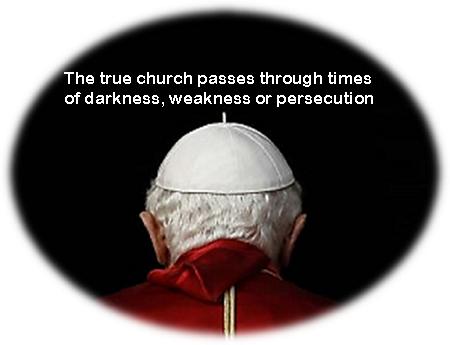
The Confession calls us to a realistic view of local churches. Congregations are more or less pure with respect to what is taught in them, how the sacraments are administered, and how public worship is conducted. One need only read Christ’s words to the seven churches (Rev. 2-3) to see that churches often slide into errors of doctrine or practice. When someone says he wishes we could go back to the ways of the first-century church, perhaps we should ask if he means the church in Corinth? They had problems with division, pride, a celebrity mindset, incest, failure to implement church discipline, fornication, people getting drunk at the Lord’s Supper, and false teaching about the resurrection. Nevertheless, Paul addressed them as “the church of God which is at Corinth” (1 Cor. 1:2).
The best of churches are subject both to mixture and error. There may be hypocrites among the members of a true church and great Christian leaders can make great mistakes, though they are sincere believers. Sadly, some churches and denominations have fallen into such profound errors that they can no longer be called true churches of Christ. Though it is possible that some true believers remain in them, the official teachings and practices of their churches deny fundamental truths of God’s law and gospel. Let us watch and pray, lest our churches slip into this terrifying pit.
However, we should not fear that the church will disappear from the earth, for there shall be always a church on earth.
The Son of God said, “I will build my church; and the gates of hell shall not prevail against it.” (Matt. 16:18)
One name for believers is overcomers. The world wages war against Christ and His church, but “the Lamb shall overcome them: for he is Lord of lords, and King of kings: and they that are with him are called, and chosen, and faithful” (Rev. 17:14). Though we are called to watchfulness, we are to watch in hope, for the wedding day of Christ is coming, and His bride, the church, will be beautiful on that day (Rev. 19:7-8).
Westminster Confession of Faith (25.6)←⤒🔗
There is no other head of the Church but the Lord Jesus Christ; nor can the Pope of Rome, in any sense, be head thereof; but is that Antichrist, that man of sin, and son of perdition, that exalts himself, in the Church, against Christ and all that is called God.
The Biblical Doctrine of the church revolves around Jesus Christ. He is the head of the church, which is His body, and He must have the preeminence (Col. 1:18). He has supreme authority (Col. 2:10). The church submits to Him as its Lord (Eph. 5:22-24). He is the source of our life (Eph. 4:15-16). When men claim to follow Christ but really follow their own personal notions or traditions and manmade rules and forms of worship, they are not holding the Head (Col. 2:18-23). Christ must always be first, or we have ceased to be the church of Christ.
One of the great heresies of the Roman Catholic Church is their exaltation of a man to the place of Christ. The Pope or Bishop of Rome takes the title “Vicar of Jesus Christ,” meaning that he acts as Christ’s representative, ruling as the supreme head of the church on earth. He is also called “Pontifex Maximus,” meaning supreme or great high priest (Lev. 21:10, Vulgate), but the Bible says our great high priest is Jesus, the Son of God (Heb. 4:14). Invoking the authority of Peter, the Pope claims to speak infallibly on matters of faith or life, placing his own words on the level of the words of Christ.
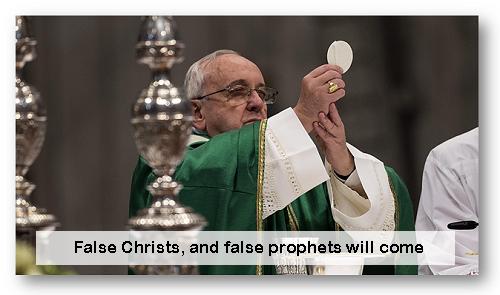
It may surprise modern readers that the Westminster Confession calls the Pope the Antichrist. Today the Antichrist is popularly conceived to be a great military leader who will rule the world with supernatural powers. But in the Scriptures, the word antichrist is used of false teachers who deny fundamental teachings of the faith. John wrote, “Little children, it is the last time: and as ye have heard that antichrist shall come, even now are there many antichrists” (1 John 2:18; cf. 2:22; 4:3; 2 John 7).
The Lord Jesus warned that “false Christs, and false prophets” will come (Matt. 24:24). Paul foretold the coming of the “man of sin, the son of perdition” who would exalt himself to the place of God in the temple (2 Thess. 2:3-4). The Westminster divines believed (and make a good case for their beliefs in their frequent writings on this subject!) that the office of the Papacy (not any one individual Pope) fulfilled these prophecies, asserting its claim to rule the universal church, which is the New Testament temple of God (1 Cor. 3:16).
Thus the Westminster Confession closes its chapter on the church with a solemn warning. Christ alone is the head of His church. He who dares to usurp Christ’s place becomes an enemy of Christ. The confession of the true church has ever been, “Jesus is Lord!” It was this conviction that led early Christians to choose death rather than to worship the emperor of Rome, and the same conviction strengthens the church in every age. The blessed hope of the church is the return of her King, and her prayer is ever, “Come, Lord Jesus!”

Add new comment